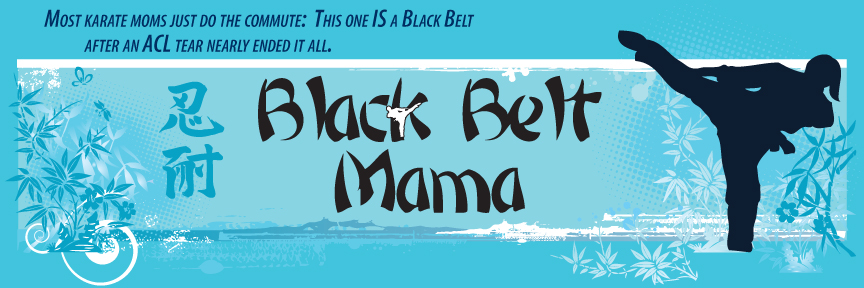October 8, 2009
Get Rid of the Warm and Fuzzies
Last week, I had a student skip his scheduled speech date. In order to pass the class, students must give all speeches. I also don't allow late assignments. So when he came in my class and asked what he should do about it, I had a decision to make.
I happen to like this kid and think he has great potential; but he is such a slacker right now and he needs to get organized. So I decided to allow him to give his speech a class late for half credit. It's still a failing grade, but at least he won't have to dig himself out from under a big 0. I told him though, that the only way I was allowing him to deliver his speech was if he wrote a personal improvement plan, a plan that detailed how he was going to get his act together.
Today he came to class on time and with his plan in hand. I allowed him to deliver his speech and with any luck, he will pass this class, probably by the skin of his teeth.
But that's not what I want to talk about today.
What I want to vent about is what was in his personal improvement plan. Apparently, this student has some learning issues and spent much of his high school career being pulled out of mainstream classrooms to be coddled. He says so himself. He goes so far as to say that he was actually "spoon-fed" answers on tests on most occasions and that because of this he entered his freshman year of college without any skills when it comes to getting work done and correctly. Things were done for him in high school.
He is not the first university student I have had with these types of problems; and frankly, something needs to be done about it. We spend so much time in education, stressing the importance of making students feel good about themselves by handing them answers and spoon-feeding them, that we forget that we're doing a huge disservice to these students. When you're used to being spoon-fed, what will you do in the work force? I'll tell you what, you'll fail in that arena too.
When I taught high school, my second year of teaching I was given three special education TAM classes which means that I had a special education teacher in my classroom during those three classes and my students' issues ranged from not being able to read, to having ADHD, to having severe behavior problems. I was at first, very upset about having these classes. I didn't get any special education training when I was getting my Master's in education. I didn't have any idea what to do or where to begin; and personally, I felt it was grossly unfair to my non-special ed students since they made up less than 50% of the classroom and were surrounded by many more special education than state-mandated laws should have allowed. Fortunately, I had a talented teacher in my classroom to help me. She provided accommodations to students, but one thing she did not do was coddle them or give them answers. Because of this, I would sometimes hear students talk about how much easier the other special ed. teacher was to work with. This teacher was notorious for handing kids A's when they did nothing to deserve them. It was extremely frustrating for me and for my TAM teacher.
Having moved on to teach at the university level, I am increasingly frustrated with where education is going. Some of these freshman are completely unprepared to handle the responsibility of a college class. This isn't high school. I shouldn't have to write assignments on the board each day, when they already have a syllabus. It can be a frustrating job of taking them out of the hand-holding attitude they've grown up with to one that stresses personal responsibility.
While I fully realize that kids with learning disabilities and behavior issues need modifications, simply providing them with answers they don't have to work for isn't helping anyone. Self-esteem is definitely important when it comes to education, but shouldn't we be helping students with their self esteem by giving them the tools and resources they need in order to find the answers on their own. Isn't this actually what education is intended to be? Isn't the feeling kids get from actually accomplishing something on their own better than us lowering expectations and still patting them on the head?
I'd like to know when special education became a warm and fuzzy thing where instead of teaching kids alternate ways to get to the answers, we decided it's best to just hand them the answers. There is a trickle down effect to this that is bringing students into universities unprepared. And if students go directly from high school to the job market, then what?
One may think that I haven't experienced any issues with my own kids, and therefore can't speak to this issue; but that is simply not true. In 1st grade, Big I was pulled out of class several times a week to get extra help with reading. She didn't like being pulled out and I didn't like it either. I fought it her entire Kindergarten year and finally gave in during 1st grade. She was behind the other kids when it came to reading. She needed to get caught up. After a couple months of extra help, she was able to stop going to the reading resource teacher. The teacher, although tough at times, didn't hand her answers. She taught her better ways to read and Big I got it. She didn't get a sticker every week; she got one only when she had done really well. It paid off. Now in third grade, Big I is one of two kids in an independent reading group. She doesn't need guided reading because her reading comprehension is off the charts. I recognize that kids need extra help sometimes; but they need the right kind of help to really get somewhere.
I've heard a lot of talk recently about extending school days and extending the school year. Maybe instead of adding more time to the school year, we should be changing what happens in the classroom during the hours they are there. Ten hours of handing kids the answers isn't going to be any better than eight hours of doing the same thing. However, eight hours of actually teaching kids with learning issues how to work more efficiently and find the answers on their own is going to benefit not only the students, but future employers and our country as well.
The dumbing down of American students has to stop if we want our country to be successful an competitive. Instead of lowering expectations, we need to raise them and help students find ways to get there. Spoon feeding is for babies, not grown-ups; and something clearly needs to change.























Amen, darlin’, amen.
I think what happens is that they find it more expedient to just give them the answers. And of course, there are the parents, who frequently have their heads up their butts when it comes to their kids.
The more I read, the more I want to home school…
I was never spoon fed anything during high school, but I still found the transition to college a bit difficult, because it does change from supervision to being unsupervised.
The problem is, of course, so much more complex than changing the way we teach. I am in the trenches for students of all abilities. I don’t put up with a lot of crap, but I am also flexible in the classroom. The child who fails continually is used to failure. It is their norm-if you show that child even their smallest success, this potentially motivate the student. It could potentially change the way they view their own education. Perhaps this could be viewed as spoon feeding, but to me, it’s a teaching method. Sometimes it works and that’s great; other times, it doesn’t, so you change things up yet again.
With NCLB, everyone is scrambling to get the skills covered that are on the tests…not ideal, but expected now. That doesn’t leave very much time for teaching other materials that could be as beneficial, if not more so. (Although I have a whole philosophy about “teaching to the test”-I’ll save that for my own blog.)
But the biggest reason that education went to all that “feel good BS” (my loving term for it)? Parents. Many parents want you to spoon feed their kid. They don’t care about learning, they care about the grade (yet another blog post…grades…). Let’s face it, it’s hard as parents to see our kids upset. Nowaways, instead of telling our kids, “Oh well. You figure out how to deal with it” we try to fix it for them. We call the teacher. We pressure (intentionally or unintentionally) the teacher and many teachers bend. If they don’t bend, the principal is called in. Blah.
It is so complicated. It is so much more than an easy fix. Our society has grown into this. And while I fault parents, I see myself doing some of the same things as a parent that I despise in the parents of the kids I teach. Sorry to ramble on…it’s a touchy subject.
Oh, and I agree with Avitable, too. It’s not an easy transition even with the perfect education. Some handle it better than others. Remember I told you it’s the “13th grade.” 😉
Exactly! So you can imagine if you HAD been spoon-fed the entire time? How much more difficult the transition would be? These kids are at a severe disadvantage.
I totally agree with you about having kids experience some success; but when theyre not doing anything and being given the answers always, its not good for self esteem or future success. It just really struck me today when the kid himself recognized what had been done and why he was having such a hard time. And I agree about parents. I so agree, which is why Im so happy I dont have to deal with them anymore. 😉
So true!
Ugh, yeah, but thats a whole different story and the kids that have been home-schooled the entire time and then come to college have a huge transition too.
hello dropping by your blog and found that you have many interesting posts here. Have added a link to you.
I have to say, that my kids call me mean when I make them find the answers. And I do know how special ed kids are fed. I have had two friends leave teaching because they disagreed with such practices.
You know the more stuff is dumbed down, the worse it is going to become. All kids are not equal in the smarts department and if they are protected just to push them out the high school door, well, then what?
They get into college and cannot hang with the fact that they really don’t measure up. They will have no skills as to how to get things done. I see it in my 4th grader. And I tell him that my job is to ask if he needs help, is it finished, is it in your backpack…if he’s lying, we’ll find out. And then he gets the “actions equal consequences” lectures.
It would be different if I thought he had a learning disability, naturally.
Side note: Good for the kid for taking it and being responsible. I hope he does a great job.